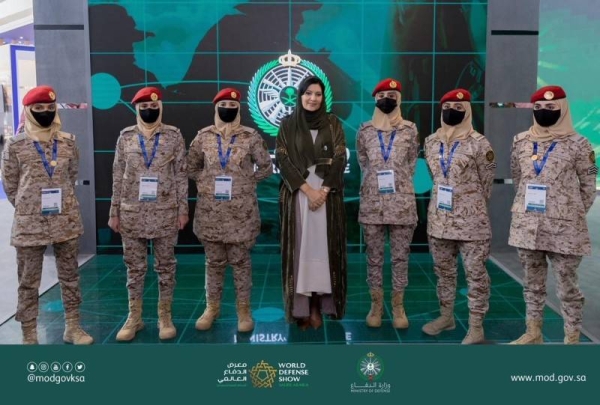Khalid bin Hamoud Alkhatani
COLOMBO: Since the era of the founder king, King Abdulaziz bin Abdulrahman Al-Saud until the era of the Custodian of the Two Holy Mosques King Salman bin Abdulaziz Al-Saud, the Saudi women have enjoyed many manifestations of empowerment and construction until they became an active partner in the upliftment and development of the nation, and achieved Qualitative successes in various scientific, economic, political and social fields.
The systems of the Kingdom of Saudi Arabia, derived from Islamic Sharia, adopt the principle of complementary equality between men and women, taking into account the characteristics and attributes of both sexes, to achieve justice in the end. The Kingdom of Saudi Arabia believes that the integration of the relationship between the sexes is an ideal way to promote and protect human rights, and for most areas of human rights to become Human rights include absolute equality between men and women, such as the right to work, education, health, economic rights, and others. Based on the perspective of equality and emphasizing it, the Human Rights Commission provides both women and men the right to submit reports in accordance with the requirements. The Kingdom has instituted reforms to enhance women’s participation in economic development, including unifying the retirement age for both sexes, preventing discrimination between the sexes in terms of wages, type and field of work, and working hours, as well as enabling women to engage in business without obtaining prior approval.
In addition to the Kingdom of Saudi Arabia’s ratification of the Convention on the Elimination of All Forms of Discrimination against Women in 2001, legislation and reforms have passed over the past years to include women more in advancing development, due to their important role in contributing effectively through leadership and administrative roles. The Saudi government was keen to place qualified women in senior positions in several fields, and a generous royal decree was issued allocating 20% of the seats in the Shoura Council to women in 1434H, in addition to electing them to the boards of municipal administrations and appointing several women to leadership positions in the government sector, as well as In the private sector, perhaps the most prominent measures taken by the Kingdom of Saudi Arabia to ensure the empowerment of women in all fields are the following:
Amending and issuing many regulatory frameworks to achieve equality between women and men, the most prominent of which are the labor system, the travel documents system, the civil status system, the social insurance system, the traffic system, and the personal status system: as a whole, these systems constitute guarantees for empowering women and supporting them in their civil rights.
Assigning Saudi Women’s Empowerment Initiative within the framework of the general budget of the Kingdom of Saudi Arabia.
Introducing and developing educational fields that would contribute to empowering Saudi women to obtain modern job opportunities in various fields.
Establishing a Women’s Committee in the Family Affairs Council to review policies and build partnerships, initiatives and programs that aim to enhance women’s status and empower them socially, economically and cognitively.
The Human Rights Commission has allocated a special committee for women within its committees, concerned with protecting and promoting women’s rights in accordance with international standards in all fields.
The Gender Balance Center was established.
The Kingdom’s Vision 2030, launched by HRH Prince Mohammed bin Salman, Crown Prince and Prime Minister, devotes the necessary efforts to women in societal and economic development and highlights them as an influential element at all levels. An independent strategic goal was allocated in the vision to raise women’s efficiency and increase their participation in the labor market to be part of the development movement taking place in the Kingdom of Saudi Arabia. From this standpoint, Saudi women’s steps towards empowerment accelerated thanks to the issuance of many decisions, legislation and regulations that enhance their position in society, thus becoming An effective partner in national development in all fields. Vision 2030 contributed to the increase in Saudi women’s participation in the labor market. Their participation rate reached 36%, and compared to 5 years ago, this percentage is more than double what it was. According to the main indicators of the labor force survey for women in the Kingdom, the unemployment rate has achieved a noticeable decline compared to previous years.
The Saudi Statistics Authority revealed the number of females working in the private sector during December 2023, reaching 1,280,675 employees, including 945,691 Saudi women and 334,984 residents. The report reviewed 44,769 citizens joining work for the first time in the private sector during 2023, bringing the total number of workers in the private sector to 10,975,830 workers. According to the Saudi Labor Market Bulletin, females constituted 40.8% of the total number of citizens working in the private sector, which numbered 2.3 million, while males constituted 59.2%, numbering 1.3 million citizens. During the year 2023, the percentage of women’s participation in the labor market doubled to 35.3% in 2023 compared to 17% in 2017, in addition to empowering them in leadership positions and in multiple new fields such as the tourism and entertainment sector. The Saudi Women’s Report 2022 issued by the General Authority for Statistics indicated that the young age groups of women represent the highest number among other age groups, as the number of women in the age group (15 – 19) reached 916,439 female employees, and the number of women in the age group (20 – 24) 850,780 female employees.
(The writer is the Saudi ambassador in Colombo)

